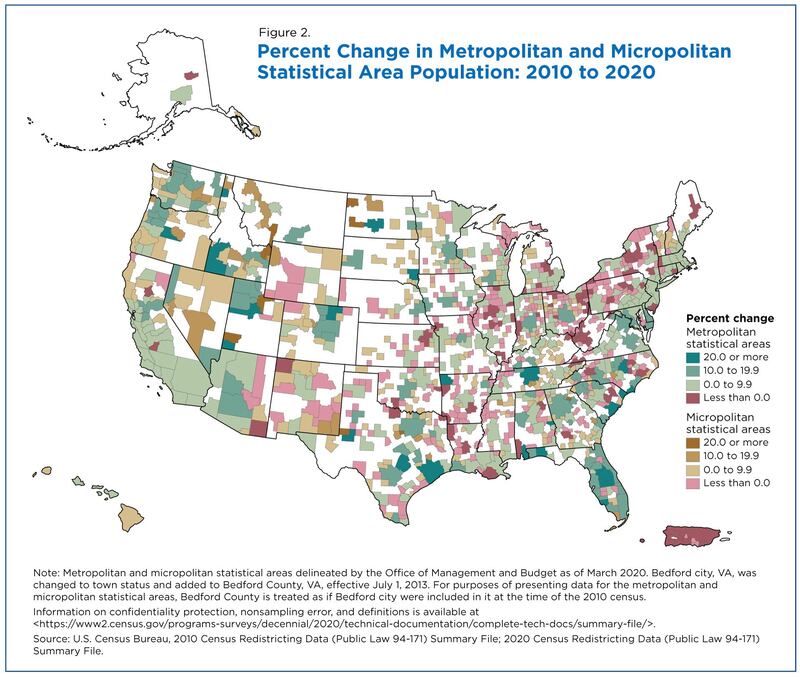Break out a six-pack of Mirror Pond: U.S. Census data confirms the Bend boom.
Demographers are poring over the release of the first detailed population figures from the 2020 Census. Those numbers are used to reapportion congressional seats—Oregon already knew it had gained one additional seat in the U.S. House of Representatives—and show population changes from 2010 to 2020.
What stands out from today’s data release, however, is how much of the state’s growth occurred in and around the Central Oregon city of Bend. Even a passing glance at the Census Bureau’s national map validates what most Oregonians suspected: Deschutes County grew more sharply than any other Oregon county over the past decade.

Portland State University’s Population Research Center spent much of Thursday crunching numbers. Its data set shows Deschutes County grew 25.7% in 10 years. The county added more than 40,000 people; 22,000 of them moved to Bend.
By comparison, Multnomah County—home to Portland—gained 80,000 people, but that’s only a 10.9% increase over the decade. In other words, people are indeed still moving to Portland, national infamy be damned. But not at the rate they’re moving to Bend. (Or Sisters: That high-desert town saw its population increase by 50% in 10 years.)
It’s also interesting to look at the city-by-city population increases, where a trend emerges: While Portland grew, its suburbs exploded.
North Plains and Happy Valley, two towns on the metro area’s eastern and western edges, both saw population gains of more than 70%. That’s an especially impressive figure for Happy Valley, which grew from 13,903 people in 2010 to 23,733 in 2020.
That’s good news for state Rep. Janelle Bynum (D-Happy Valley), whose case for legislative leadership is bolstered by representing one of the fastest-growing places in the state. (It can’t hurt her McDonald’s restaurants, either.)

